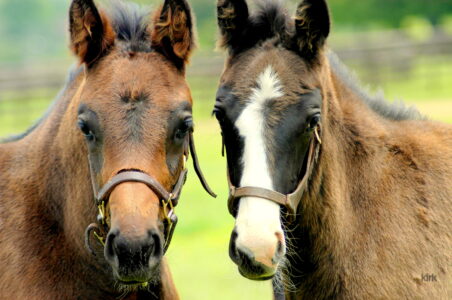The first step when buying or selling a horse farm
Published 12:08 pm Tuesday, February 18, 2025
|
Getting your Trinity Audio player ready...
|
The motivation behind writing equestrian-related columns comes from my personal experience living on a working horse farm for the past 18 years with a professional equestrian trainer. My partner, an expert in her field with more than 40 years of experience in eventing, training, rehabilitating, and a general love for the equestrian lifestyle, has taught me countless lessons about what it truly means to live on and manage a horse property.
Over the years, I’ve worked with many people interested in purchasing horse properties, and after living on one for nearly two decades, I can’t help but chuckle under my breath at how simple many people think the process might be. Owning a horse property is a huge commitment, one that goes far beyond just buying the land and moving in.
Some of the questions that should be considered upfront include: What is your riding discipline? Are you an amateur, a pleasure rider, or do you want to step into the broader world of showing? How much time will you be able to dedicate to your farm and horses? What equipment do you already have, and what will you need? How many horses do you currently have, and how many do you plan to have in the future? What’s your time frame for buying—are you looking to build or purchase an existing property? Is this a process you expect to take time, or do you need to move quickly? What’s your budget? Do you need to sell your current property in order to buy the farm you want? And the list goes on.
Trending
Polk County—especially Tryon and the surrounding area—is unique when it comes to equestrian communities. We have an abundance of horse farms here, which gives the area its undeniable charm. But it’s not just about the number of horse owners—there’s a full infrastructure in place that supports the equestrian lifestyle. We’re lucky to have suppliers for equipment, feed, trailers, clothing, and much more.
Our community also has excellent veterinary care, farriers, equine dentists, massage therapists, boarders, trainers, and instructors. Even many of our local restaurants have an equestrian theme, and it’s common to see people coming and going from shops and grocery stores dressed as if they just came from the barn. With or without the Tryon International Equestrian Center, Polk County has a rich equestrian culture that goes back long before Carter Brown invited his friends to the Pine Crest Inn.
But with all of this charm, history, and excitement comes one common thread: expense. Equestrian life, horse care, and maintaining a horse farm all come with a significant price tag.
When people consider buying a horse farm, they need to be financially prepared for the substantial costs of purchasing, building, and maintaining such a property. The list of things you need just to live day-to-day on a farm is mind-boggling. Will you be doing this as a business, or are you an amateur or professional equestrian? You’ll need tractors, both midsize and industrial-grade mowers—two of each. A front-end loader is a must-have, along with four-wheelers and other farm vehicles. Then there are the basics: hoses, wheelbarrows, shovels, muck rakes, electric fencing systems, generators, and feed rooms. You’ll also need storage space for hay, among other things.
However, despite the many equestrian enthusiasts in our community, only a small percentage actually wake up every day to face the demanding chores of caring for their horses. These horses need attention—rain, sleet, snow, or shine, and whether they’re healthy or ill—every single day.
The majority of horse owners in our area board their horses elsewhere, leaving the daily care and feeding to the owners and staff of boarding stables. That too can be expensive, with costs varying from do-it-yourself care (where the owner is required to come at set times) to full-service barns (where the barn owner and staff handle all aspects of care).
Trending
And don’t forget: horses can live a very long time—often 25 years or longer—and sometimes outlive their owners. So, if you’re a senior, have you made provisions for the care and well-being of your horse in the event you predecease it?
Following your dream of owning a horse farm requires a large financial commitment, careful thought, and ongoing consideration. The most important question remains: Are you knowledgeable enough, wealthy enough, horse-savvy, passionate, and ‘crazy’ enough to take on this responsibility?

Two young horses, standing side by side, reflecting the close-knit community of equine enthusiasts in Polk County. (Photo by Kirk Gollwitzer)






